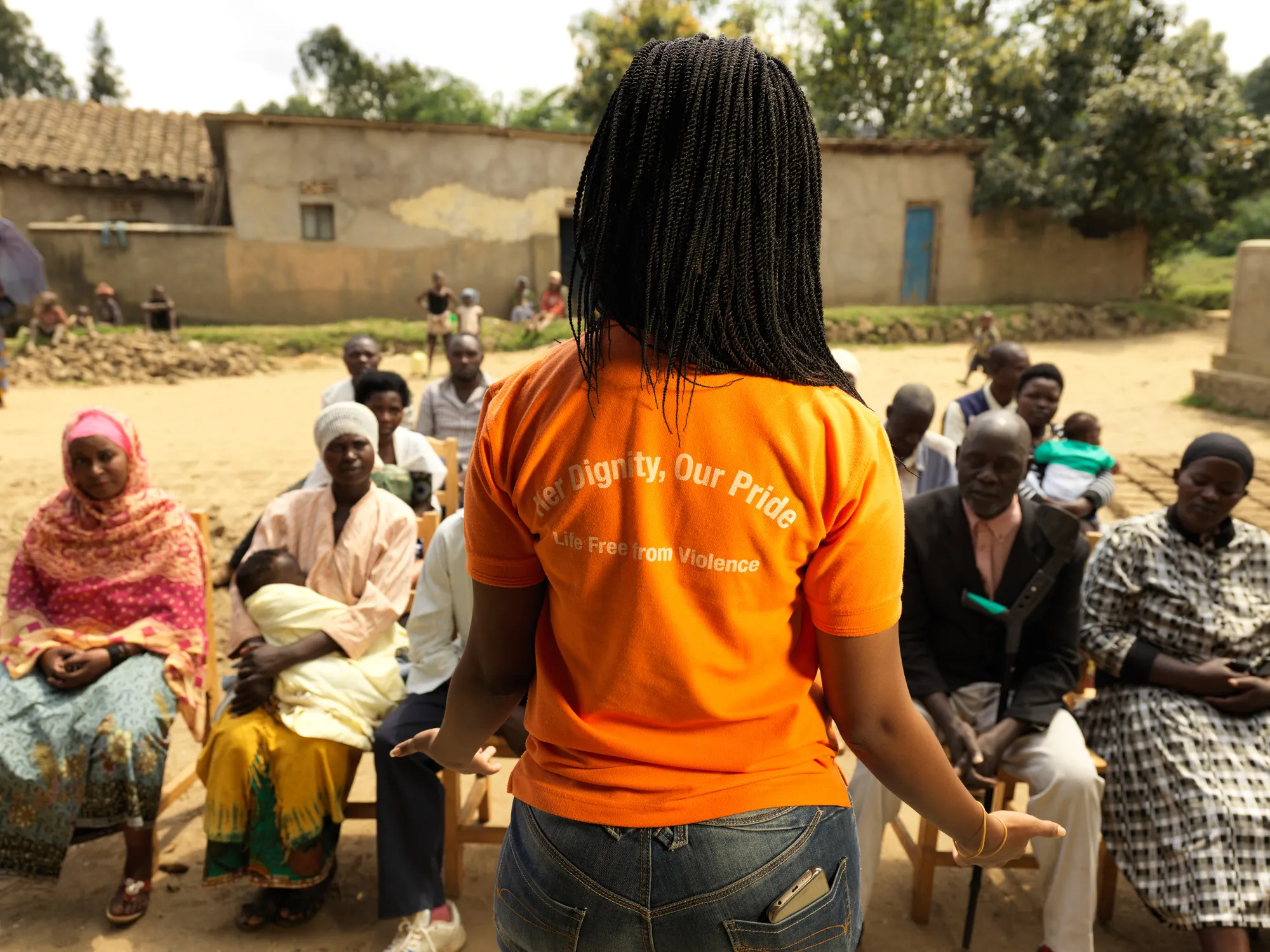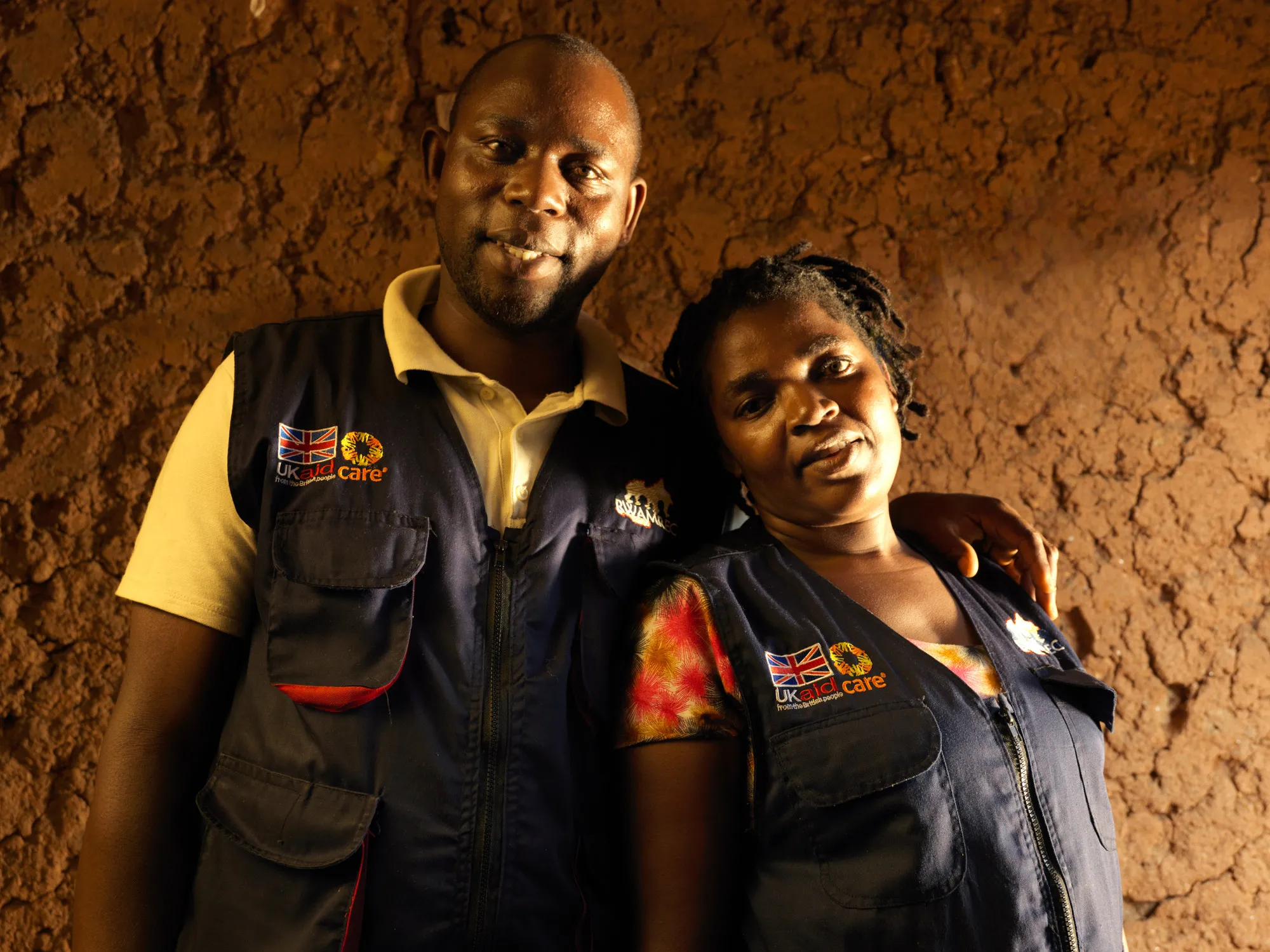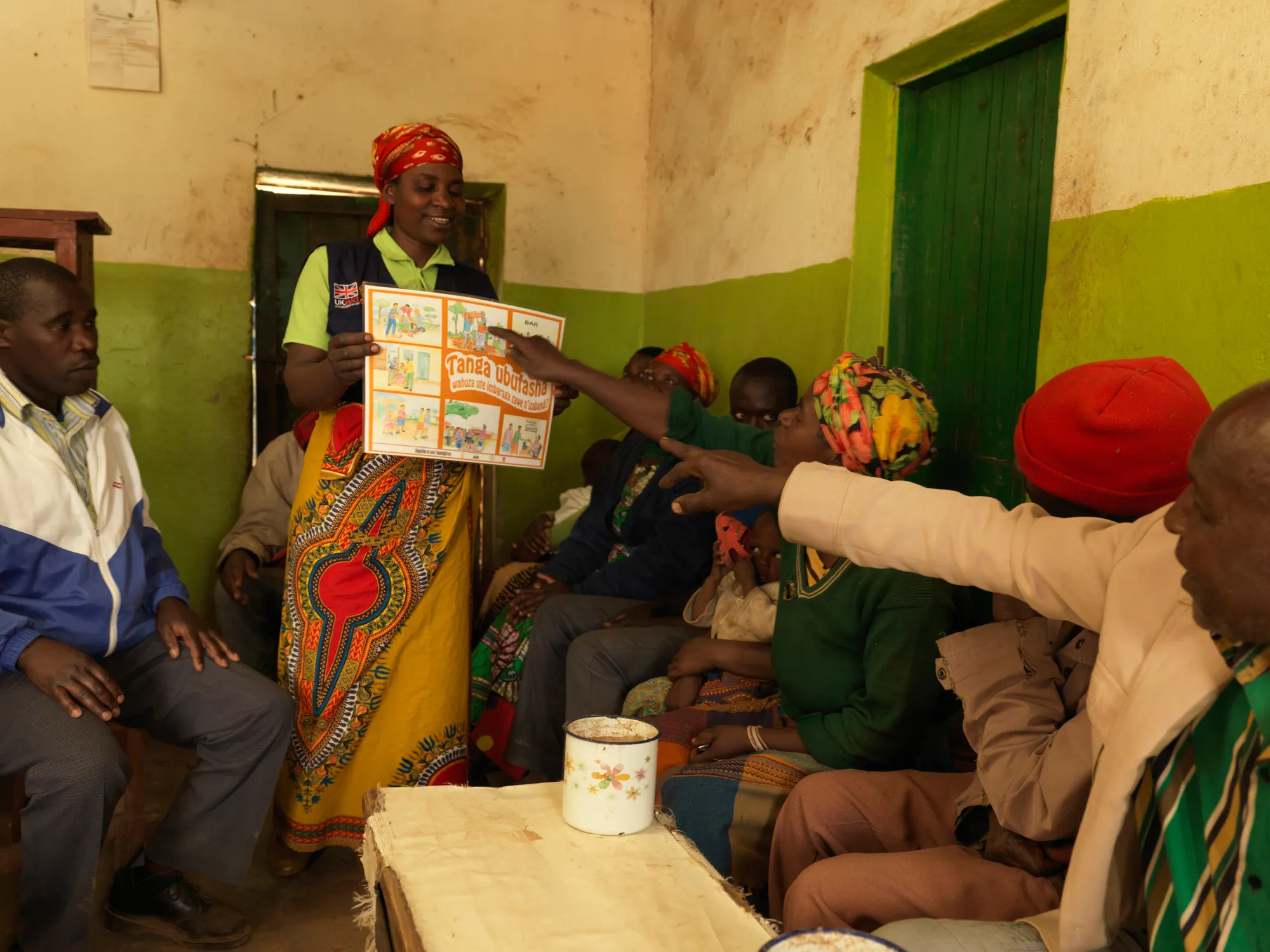Similar to most men in their community in northwestern Rwanda, Alphonsine’s husband Augustin thought a woman’s place was in the home and Alphonsine’s opinion wasn’t important when it came to making decisions about their family.
Even though Augustin didn’t see it this way, keeping Alphonsine in this disempowered “place” made her one of the many women at risk for violence in Rwanda. According a recent government study, 1 in 3 married women in Rwanda reported experiencing physical violence from their partners, and 46% of married women have experienced spousal physical, sexual, or emotional violence.
“I was never allowed to engage in any income generating activities,” recounts Alphonsine. “We used to have conflicts related to property.”
“My husband could never listen to my advice.”
All of that improved when the couple joined Indashyikirwa – which means ‘agents of change’ in Kinyarwanda– and examined the power dynamics in their relationship. The project aimed to address violence against women and girls by challenging the harmful and restrictive norms about masculinity and femininity—norms which often mean women like Alphonsine are at the mercy of their husbands.
A recent evaluation of the program showed this approach has worked. Among women who joined Indashyikirwa, there has been a 55% reduction in the odds of reporting physical and/or sexual violence from their partners.




